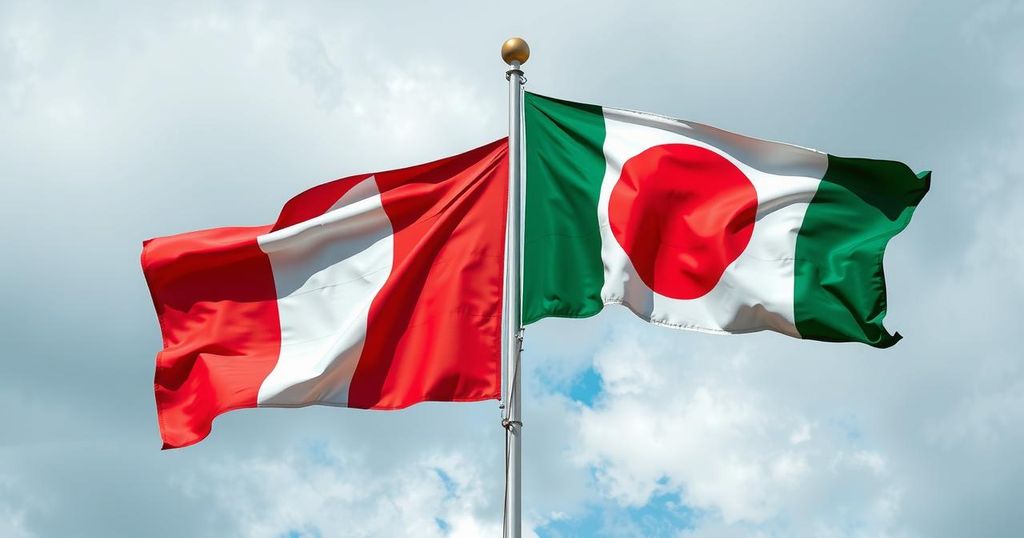Politics
AFP, ASIA, BELARUS, BLOOMBERG, CANADA, CLAUDIA SHEINBAUM, CUBA, DONALD TRUMP, EUROPE, EUROPE/ASIA, HURRICANE BERYL, INDIA, LEGAL ISSUES, MARK CARNEY, MEXICO, NATIONAL SECURITY, NORTH AMERICA, NORTH KOREA, PHILIPPINES, POLITICS, RUSSIA, TREASON, TRUMP, U.S. ELECTIONS, UNITED STATES, US, WHITE HOUSE
Leila Ramsay
0 Comments
Canada and Mexico Exempt from Trump’s April 2 Tariffs: An Overview
Canada and Mexico were exempted from Donald Trump’s April 2 reciprocal tariffs, which ranged from 10% to 45%. They continue to face existing tariffs, including a 25% duty on certain imports. The exemptions were made under the US-Mexico-Canada Agreement, while other nations face severe tariff increases, reflecting ongoing international trade tensions.
On April 2, United States President Donald Trump unveiled new reciprocal tariffs designed to address perceived trade injustices, thus sparking significant reactions worldwide. However, Canada and Mexico benefitted from an exemption from these tariffs, which ranged from 10% to 45% on various imports. The announcement was accompanied by Trump’s strong rhetoric, asserting that the US had been “looted, pillaged, raped, plundered” by other nations.
While Canada and Mexico were excluded from the April 2 tariffs, they are not entirely free from financial penalties. Existing tariffs remain in effect, including a 25% duty on certain imports and a 10% levy on Canadian energy and potash. Additionally, new tariffs on automotive products were set to take effect shortly after the announcement.
The US-Mexico-Canada Agreement allows continued exemptions for goods entering the US from these two neighboring countries. However, should Canada and Mexico negotiate on the new tariffs, they might still be subject to the original baseline rates announced by Trump. Canadian officials, including Prime Minister Mark Carney, have expressed intentions to combat these tariffs through countermeasures aimed at protecting national workers.
In related developments, nations such as Cuba, Belarus, North Korea, and Russia were also excluded from the new tariffs because they are already facing existing sanctions, which limit any substantial trade. The tariffs imposed vary widely across other nations, with India facing a significant 26% rate and China encountering a staggering 34% tariff, escalating to 54% when combined with prior increases related to fentanyl imports.
Trump’s tariff approach, framed within his 2024 election campaign promises, marks a significant expansion of trade policy, reflecting ongoing tensions in global trade relations. His administration’s expected rigorous stance on tariffs may continue to shape international economic dynamics.
In summary, Canada and Mexico successfully avoided the new reciprocal tariffs imposed by President Trump, although they continue to navigate existing tariffs. The exemption is linked to the US-Mexico-Canada Agreement and other considerations. As global trade policy evolves, these nations remain vigilant in their response to potential trade disputes, while other countries face significant tariff impositions. Trump’s tariff policies illustrate the ongoing complexities in international trade relations as the administration prepares for future negotiations.
Original Source: www.hindustantimes.com




Post Comment